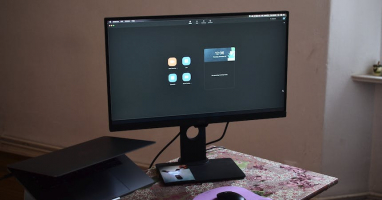Top 10 Ways to Stop Being a People-pleaser
It's wonderful to be a kind and supportive friend, family member, or coworker. You may be a "people-pleaser" if you spend the majority of your time and energy ... read more...taking care of others and doing constant favors. Read on to find the warning signals and disadvantages of being a people-pleaser, as well as solutions for changing your behaviors.
-
Start by taking note of the things you do for others. Do you find these tasks to be satisfying in any way? Or are you doing them out of habit, obligation, or a fear of disappointing the other person? Do you believe you're being manipulated into doing things you'd prefer not to do by flattery or guilt?
Paying attention now will help you in developing priorities and setting limits in the future. You will be able to see clearly and become more honest to yourself if you have a list of things you do for others, divided into those you'd like to continue and those that aren't worth your time. Talking to a trusted friend or a professional therapist might help you take a step back and see things from a different perspective.

Take stock of your people-pleasing habits 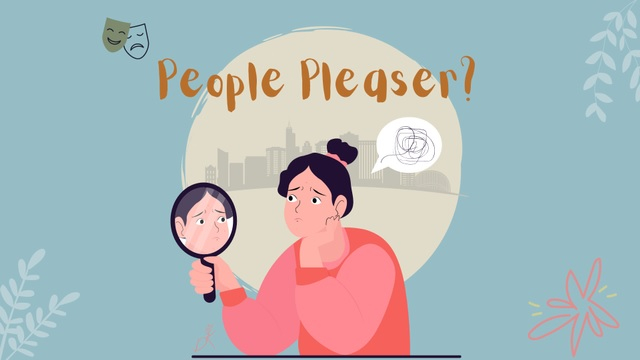
Take stock of your people-pleasing habits -
It's essential to understand your boundaries, set clear boundaries, and then express those boundaries. Make sure you're clear about what you're willing to take on. If someone looks to be asking for too much, tell them that it's above your capabilities and that you won't be able to help them.
Other ways to set boundaries in your life to help control your people-pleasing inclinations include: You may only take phone calls at specific hours to limit when you are able to talk. You might also explain that you are only available for a limited time. This is advantageous because it assures that you are in charge of not just what you are willing to do, but also when you are willing to do it.

Establish boundaries 
Establish boundaries -
While setting boundaries ahead of time might help avoid uncomfortable conversations, you'll need to politely decline requests from those who don't understand your boundaries. It is still possible to be polite, for example: "Thanks for thinking of me! However, I will no longer be doing this sort of task".
Practice in a variety of places and situations, such as while talking with salesmen, ordering at a restaurant, or dealing with coworkers. Pay attention to the tone of your voice, as well as your body language and the words you use. Do you have a voice that says "no" but ends with a question mark? Do you find it difficult to look someone in the eyes? Some people may take advantage of these flaws in order to persuade you to cave in.
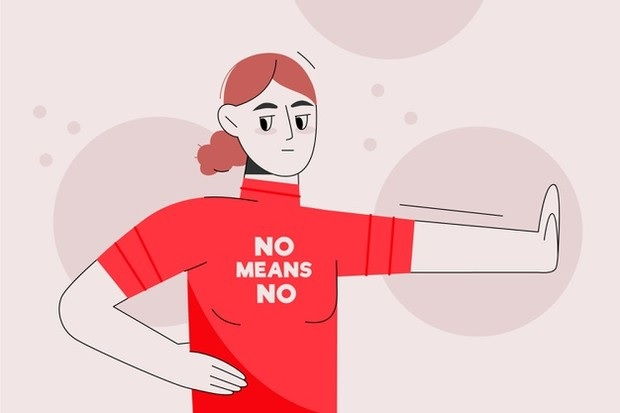
Learn to say “no” 
Learn to say “no” -
Think about how you want to spend your time. Who would you like to help? What objectives are you attempting to achieve? Knowing your priorities might help you figure out whether or not you have enough time and energy to devote to anything.
Take action to solve a problem that is draining your energy or taking up too much of your time. You'll discover that you have more time to devote to the things that are truly important to you as you practice setting those boundaries and saying no to things you don't want to do. And for last, it might be difficult, but necessary to develop a level of acceptance for other people's negative reactions. When talking with these people, remember to honor yourself and stick to your priorities.

Set goals and priorities 
Set goals and priorities -
When someone asks you for a favor, say you'll need some time to consider it. Saying "yes" immediately away might make you feel obligated and overcommitted, but taking your time to evaluate a request can allow you to decide if it's something you truly want to undertake.
Before you make a decision, consider these questions: How long will this take?; Is this something I really want to do? Do I have enough time to do it?; If I answer "yes," how stressed will I be? According to studies, even a brief pause before making a decision increases decision-making accuracy. You'll be able to more correctly assess if it's something you want by giving yourself a minute.

Stall for time 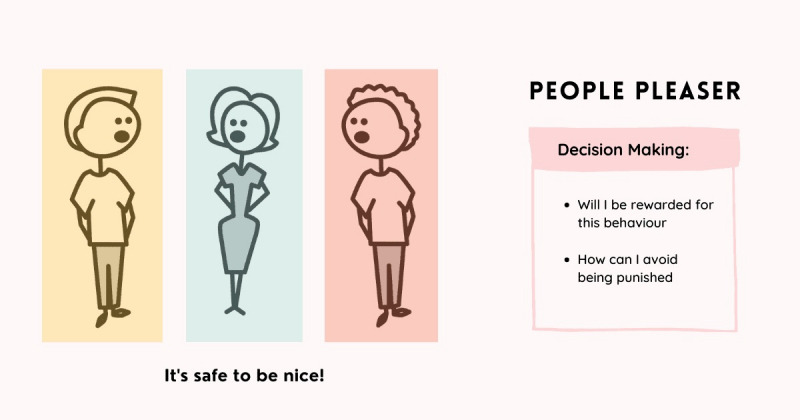
Stall for time -
When saying "no", be straightforward and avoid blaming other obligations or making excuses for your inability to participate. You give others an opportunity to poke holes in your excuse once you start explaining why you can't do anything. Alternatively, you may be giving them the opportunity to modify their request so that you may still fulfill their desire.
When declining anything, try to use a firm tone and avoid adding needless information about your reasoning. Remember that the word "no" is a complete sentence. Be firm and clear with repeat offenders or those who keep insisting on your assistance.

Avoid making excuses 
Avoid making excuses -
The solitude that is productive may increase your confidence and ability to trust yourself. You may develop a sense of your own needs, goals, and desires by spending time alone, away from the pressures of others. When you've mastered these, you'll be able to effectively express your boundaries to the people in your life. It's possible that you'll have to get over the nagging feeling that spending time alone is "selfish".
Remember that just recharging your batteries can help you become a more calm and confident person in the long term, which will benefit others in your life. It may take some time to find the solo activities that suit you best: meditation, exercise, and time spent outside are all excellent choices.
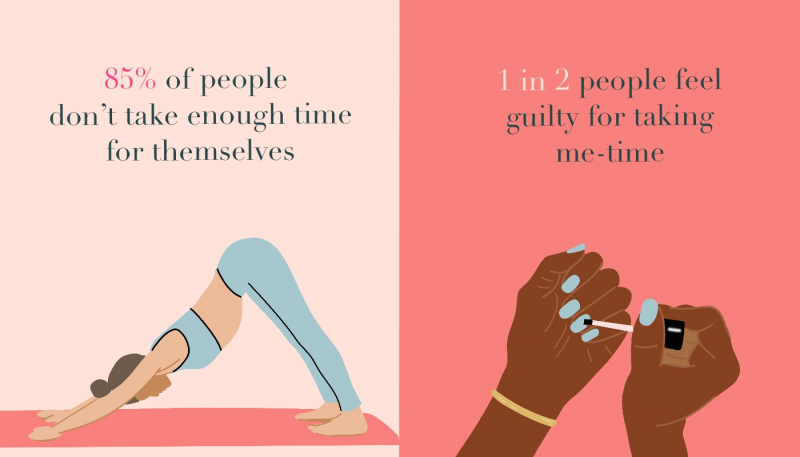
Spend quality time alone 
Spend quality time alone -
Is there anyone in your life who is taking advantage of your kindness? Do you give more than you receive from specific friends on a regular basis? It may be time to take a step back if you don't think the relationship can grow with your increased confidence.
A healthy relationship needs a certain degree of reciprocity. When one person is constantly giving and the other is always taking, it usually means that one person is sacrificing their own needs in order to ensure that the other person gets what they want. Even if you like pleasing people, it's important to keep in mind that they should be doing the same for you.

Remember that relationships require give and take 
Remember that relationships require give and take -
You don't have to stop being thoughtful and kind. Those are desirable characteristics that can lead to the development of good, long-term partnerships. Understanding your motivations and goals is the key. Don't undertake things just to avoid rejection or get favor from others.
Remember that people-pleasing is not the same as genuine kindness, being kind is a form of self-expression. Continue to do good things, but on your own terms. Kindness does not need praise or rewards; it only needs a desire to better the lives of others.

Help when you want to help 
Help when you want to help -
You may have unconsciously trained yourself to silence your own voice in order to put the needs of others first in developing a "selfless" mindset. You'll need to devote time and effort to understanding your own requirements and assuring yourself that your voice matters. Self-acceptance is an important part of this process, but it can be difficult for persons with low self-esteem to achieve.
Start a fresh cycle of self-acceptance instead of a cycle of people-pleasing that makes you feel worse about yourself. Keep track of your progress: make a list of the times when you were able to assert yourself successfully and look back to those notes when you need a boost. You could want to develop a mantra that helps you in difficult situations: affirmative statements such as "I CAN say no," "I am worthy of my own time," "my opinion matters," and others could be helpful

Remember that you are worthy 
Remember that you are worthy


















